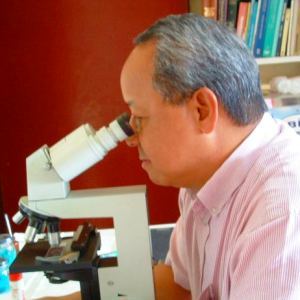AstraZeneca recently announced that selumetinib has been granted Orphan Drug Designation by the U.S. Food and Drug Administration (FDA).
Selumetinib is a MEK 1/2 inhibitor being
investigated for treatment of stage III or IV differentiated thyroid cancer
(DTC).
The FDA's Office of Orphan Products Development (OOPD)
provides grants to help companies develop new treatments and medications for
rare diseases and conditions. The program was started in 1983. Funding for
clinical trials lasts three to four years, giving companies time to fully
investigate the effectiveness of the products.
Approximately 60,000 people are diagnosed annually with DTC. While radioactive iodine (RAI) is the standard treatment for patients with metastases or at risk of recurrence, some patients do not respond to RAI. If the body does not have enough sodium/iodine symporter (NIS), the thyroid cells do not absorb the RAI.
“Uptake of radioactive iodine is crucial for patients with thyroid cancer
where no other therapies have proven beneficial," AstraZeneka Global
Medicines Development EVP and Chief Medical Officer Sean
Bohen said. "Selumetinib could significantly enhance currently available
treatment options for these patients. The Orphan Drug Designation is an
important achievement as we advance our development plans for this potential
treatment in differentiated thyroid cancer.”
Selumetinib facilitates the production of NIS, making it easier for the thyroid cancer cells to take up the RAI. It also inhibits the MEK pathway in cancer cells, which helps prevent tumor growth. The Phase III ASTRA clinical trial is testing selumetinib in patients with a high risk of recurrence. The Phase II trial showed positive results in patients with advanced thyroid cancer.








 Alerts Sign-up
Alerts Sign-up